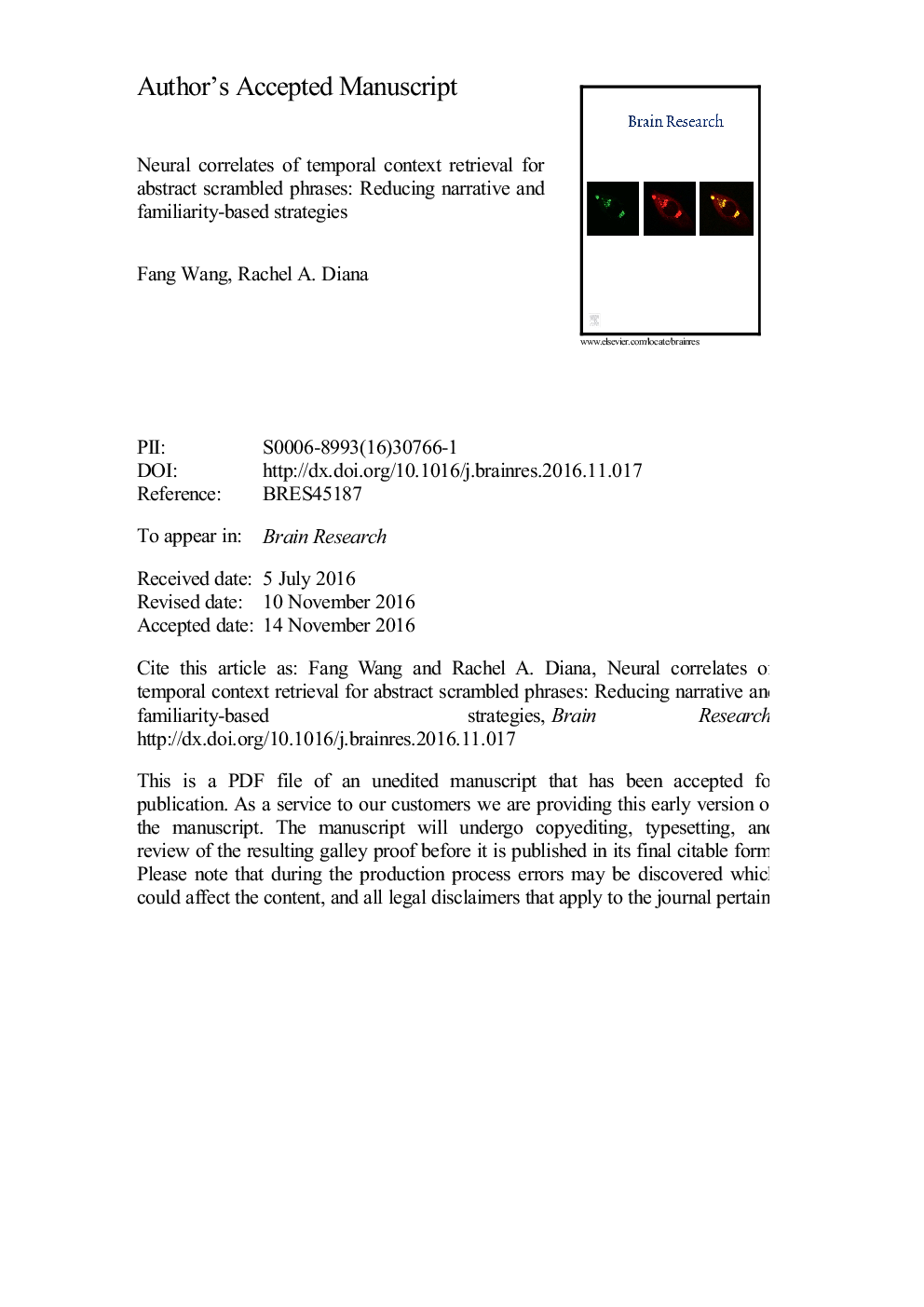ترجمه فارسی عنوان مقاله
همبستگی های عصبی در بازیابی زمینه های زمانی برای عبارات انتزاعی تقلید: کاهش روایت ها و استراتژی های آشنایی
عنوان انگلیسی
Neural correlates of temporal context retrieval for abstract scrambled phrases: Reducing narrative and familiarity-based strategies
| کد مقاله | سال انتشار | تعداد صفحات مقاله انگلیسی |
|---|---|---|
| 156221 | 2017 | 45 صفحه PDF |
منبع

Publisher : Elsevier - Science Direct (الزویر - ساینس دایرکت)
Journal : Brain Research, Volume 1655, 15 January 2017, Pages 128-137
ترجمه کلمات کلیدی
بازیابی صحیح موقتی قشر جلویی، لوب قدامی مدفوع،
کلمات کلیدی انگلیسی
Temporal context retrieval; Frontal cortex; Medial temporal lobe;

